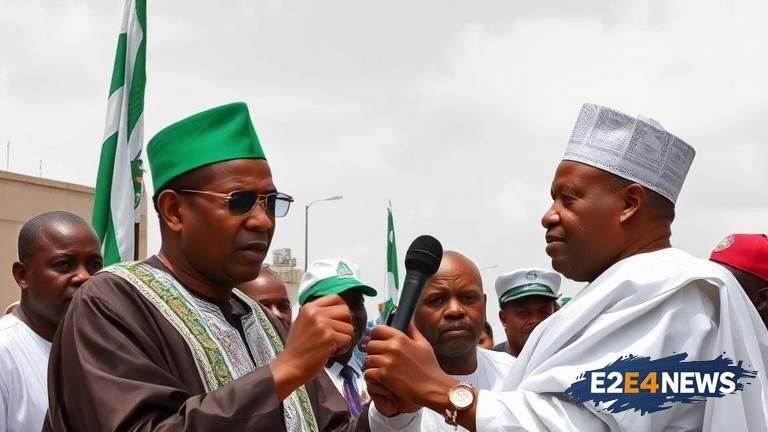The planned defection of Senator Ademola Adeleke to the All Progressives Congress (APC) has failed due to internal party conflicts and opposition from key stakeholders. According to sources, Adeleke had been in talks with APC leaders for several months, but the deal fell through due to disagreements over the terms of his defection. The APC had offered Adeleke a senatorial ticket and a prominent role in the party, but he demanded more, including a guarantee of the party’s gubernatorial ticket in the next election. However, the APC leadership was unwilling to meet his demands, citing the need to maintain party discipline and avoid creating divisions within the party. Furthermore, some APC stakeholders in Osun State opposed Adeleke’s defection, citing his past criticisms of the party and its leaders. They argued that his defection would be a betrayal of the party’s principles and values. The failure of Adeleke’s planned defection is a significant blow to the APC’s efforts to strengthen its hold on Osun State. The party had been hoping to capitalize on Adeleke’s popularity and influence in the state to win more seats in the upcoming elections. However, with Adeleke remaining in the Peoples Democratic Party (PDP), the APC’s chances of winning the gubernatorial election have been diminished. The PDP, on the other hand, has welcomed Adeleke’s decision to remain in the party, citing his importance to the party’s fortunes in Osun State. The party’s leadership has pledged to work with Adeleke to ensure the party’s victory in the upcoming elections. The development has significant implications for the politics of Osun State, where the APC and PDP have been engaged in a fierce battle for control. The APC has been in power in the state since 2010, but the PDP has been gaining ground in recent years. The failure of Adeleke’s planned defection is a major setback for the APC, which had been hoping to use his influence to win more votes. The PDP, on the other hand, is confident that Adeleke’s decision to remain in the party will boost its chances of winning the gubernatorial election. The party’s leadership has promised to work with Adeleke to ensure the party’s victory, and has pledged to provide him with the necessary support and resources. The development has also sparked a heated debate about the role of party loyalty and discipline in Nigerian politics. Some have argued that Adeleke’s decision to remain in the PDP is a testament to his commitment to the party’s principles and values. Others have criticized him for being opportunistic and self-serving. The debate has highlighted the complexities and challenges of Nigerian politics, where party loyalty and discipline are often tested by personal interests and ambitions. The failure of Adeleke’s planned defection is also a reflection of the internal conflicts and power struggles within the APC. The party has been plagued by internal divisions and power struggles, which have weakened its ability to govern effectively. The development has significant implications for the party’s future, and has raised questions about its ability to remain in power. The PDP, on the other hand, is confident that it can capitalize on the APC’s weaknesses to win the gubernatorial election. The party’s leadership has pledged to work with Adeleke and other stakeholders to ensure the party’s victory, and has promised to provide them with the necessary support and resources. The development has also sparked a heated debate about the role of money and influence in Nigerian politics. Some have argued that Adeleke’s decision to remain in the PDP was influenced by financial considerations, while others have cited his commitment to the party’s principles and values. The debate has highlighted the complexities and challenges of Nigerian politics, where money and influence often play a significant role. The failure of Adeleke’s planned defection is a significant development in the politics of Osun State, and has significant implications for the future of the state. The development has raised questions about the ability of the APC to remain in power, and has highlighted the challenges and complexities of Nigerian politics.
